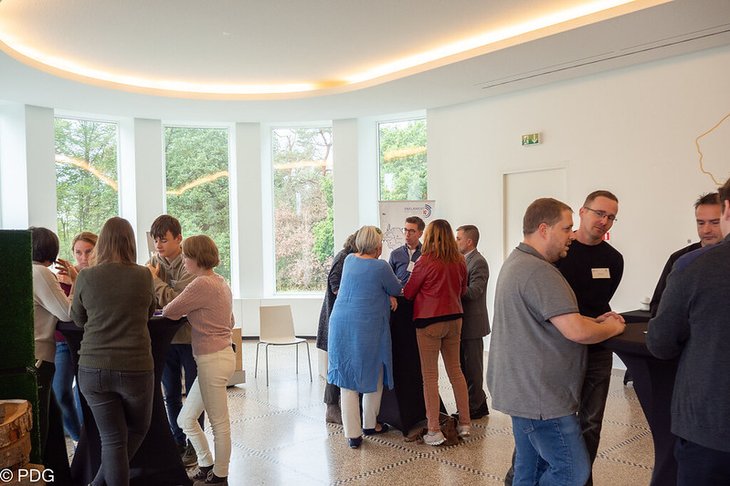What is the Citizens' Assembly?
The Citizens' Assembly is one of the three pillars of the permanent Citizens' Dialogue in the German-speaking Community. The other two are the Citizens' Council and the Permanent Secretary.
Who makes up the Citizens' Assembly?
The Citizens' Assembly is composed of about 30 members.
These citizens are chosen by lot.
Who is allowed to participate?
o people, who are registered in the population register or the register of foreign nationals in one of the nine municipalities of the German-speaking Community;
o people who are at least 16 years old.
Who is not allowed to participate?
o people who have lost their right to vote due to a conviction.
o people who are in public office (e.g. members of parliament, government, provincial or municipal councillors, judges or public prosecutors, senior civil servants).
What does the Citizens' Assembly do?
The Citizens' Assembly is mandated by the Citizens' Council to deal with a particular topic. The members of the Citizens' Assembly first look into the topics and listen to experts on the matter. Then, they discuss what recommendations should be made to the politicians.
As a result, the Citizens' Assembly makes recommendations to the Parliament and the Government of the German-speaking Community.
In all decisions, the Citizens' Assembly is supported by the Permanent Secretary. The Permanent Secretary is a staff member from the parliamentary administration.
(Anna Stuers; contact: dialogue@pdg.be).
What does the Citizens' Assembly not do?
The Citizens' Assembly does not choose the topic to be discussed. That is done by the Citizens' Council. So the topic is set before the Citizens’ Assembly get together for the first time.
When and how often does the Citizens' Assembly meet?
The Citizens' Assembly meets until recommendations have been developed and approved by all. Decisions on the organisation of the Citizens' Assembly are taken by the Citizens' Council. It decides on the time, place, programme and budget. It also decides on the selection of experts to be heard by the Citizens' Assembly. However, the participants in the Citizens' Assembly can also give their opinion on these issues and have their say.
The members of the Citizens' Assembly are given sufficient time to prepare the recommendations. The meetings are preferably held after work or during the weekends.
How are decisions made by the Citizens' Assembly?
The decisions of the Citizens' Assembly should be made, preferably, by consensus, which means that all participants should be on the same page. If this does not succeed, a vote is organised and then a 4/5 majority is sufficient.
What happens with the recommendations of the Citizens' Assembly?
There are several steps:
o The recommendations are sent to the Bureau of the Parliament. The Bureau then decides which parliamentary committee will deal with the topic.
o A delegation of the Citizens' Assembly, i.e. not all participants but some representatives, presents the recommendations during a public meeting of the parliamentary committee.
o Afterwards, all participants of the Citizens' Assembly get together again to discuss the recommendations with the members of the committee and the responsible minister.
o Afterwards, the committee and the minister takes a stand regarding the recommendations. The MPs explain in a statement, whether and in what way they will implement the recommendations. In case of rejection, the committee has to give a particularly thorough explanation as to why it has come to that decision.
o In yet another meeting, the statement is presented and exchanged.
o About a year later, the participants of the Citizens' Assembly and the politicians will meet again to exchange on the state of affairs regarding the implementation.
Where do the meetings take place?
The meetings are usually held at the Parliament of the German-speaking Community in Eupen. (There is a travel allowance for all members as explained further below). Some meetings can also take place in the south of German-speaking Community by arrangement with the participants.


